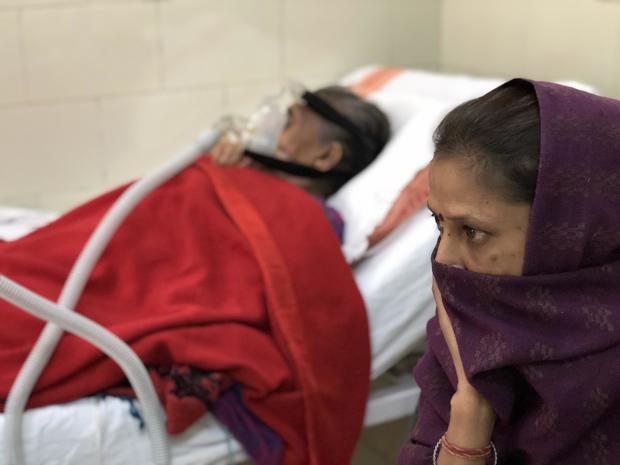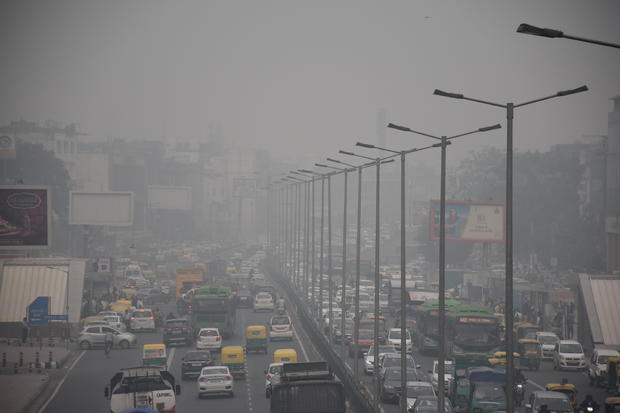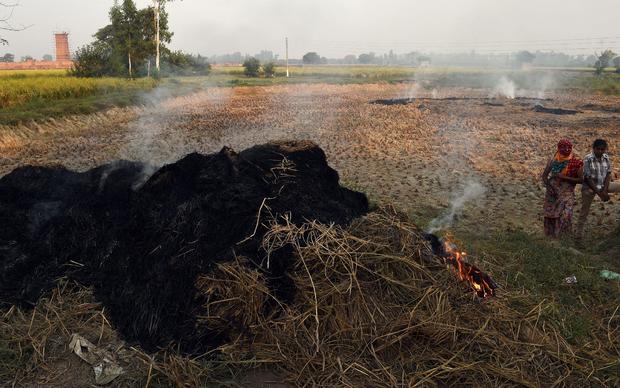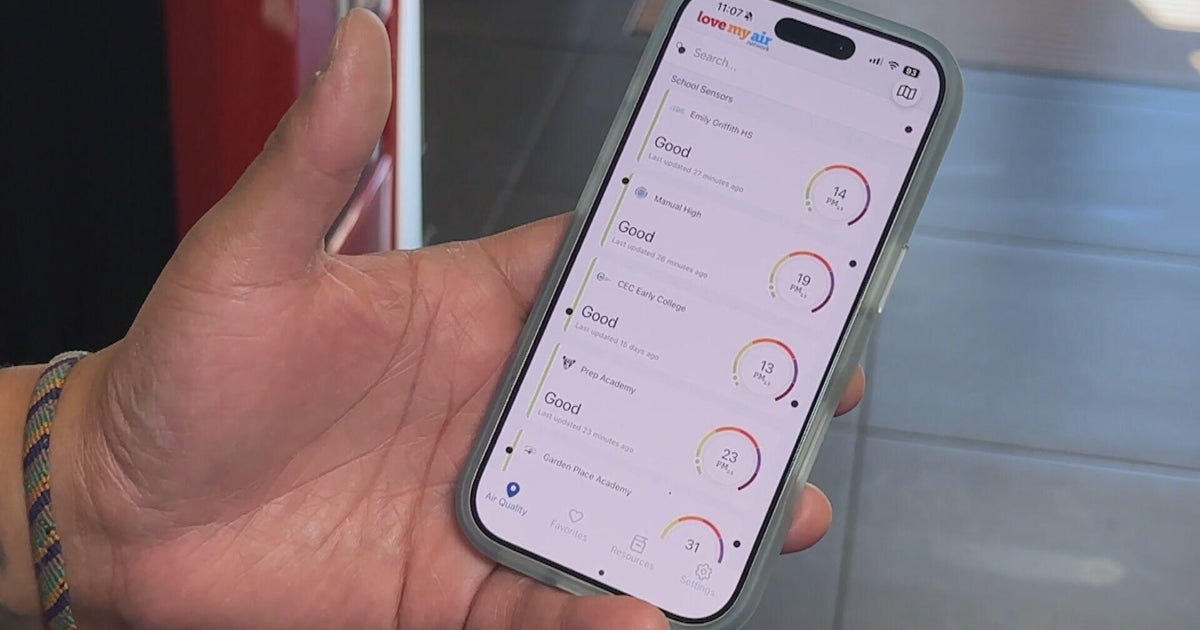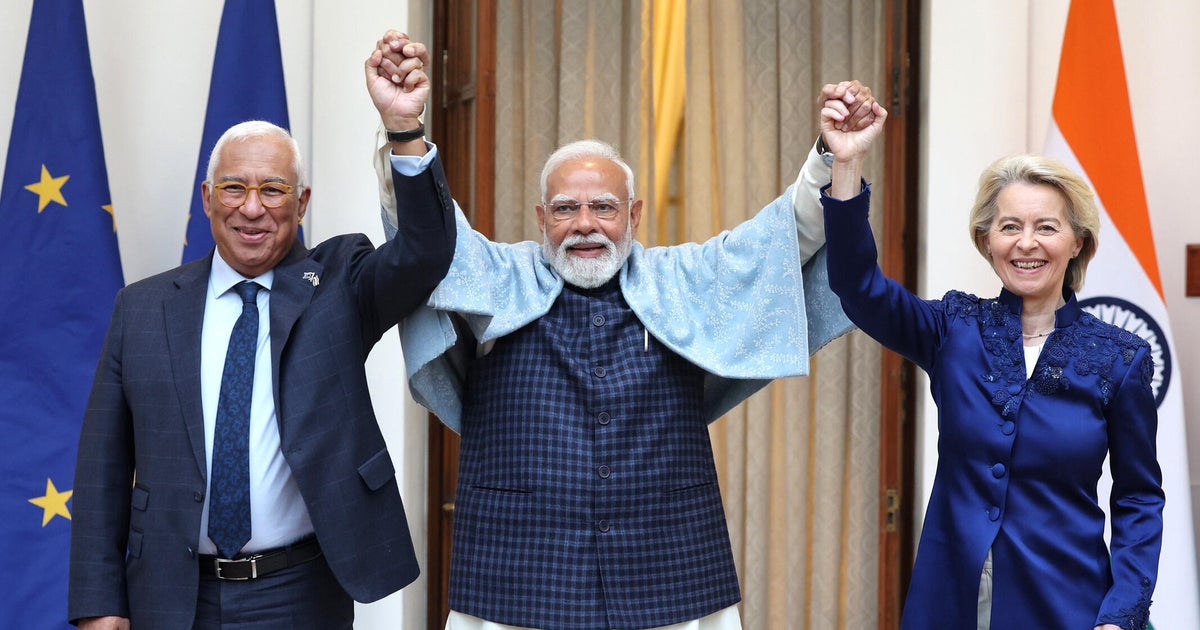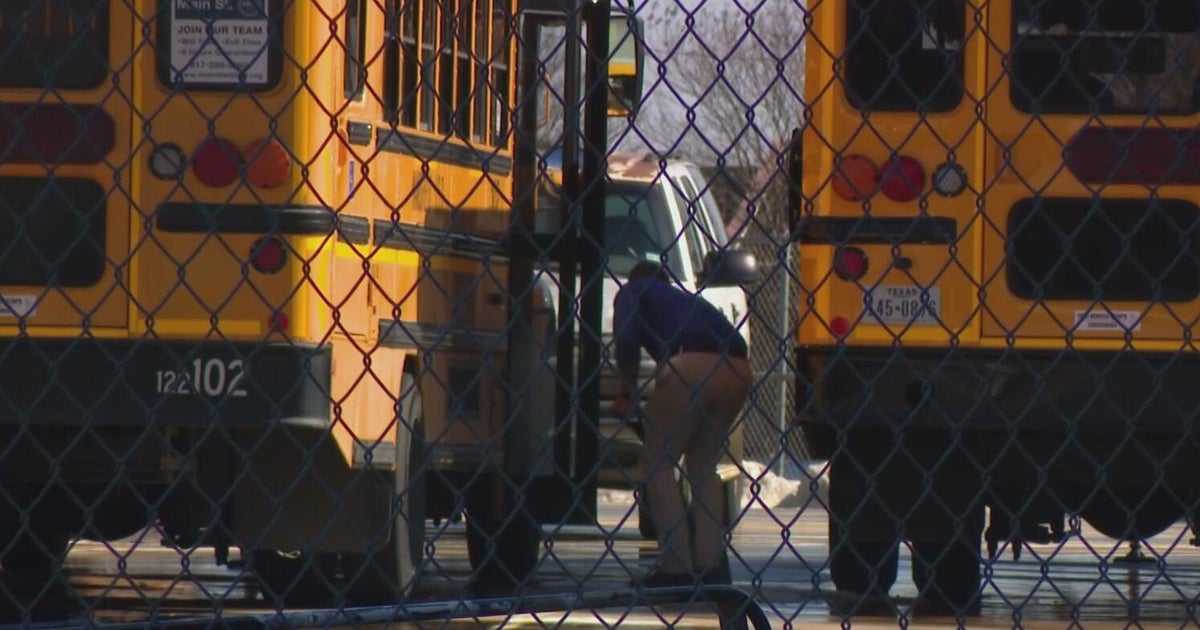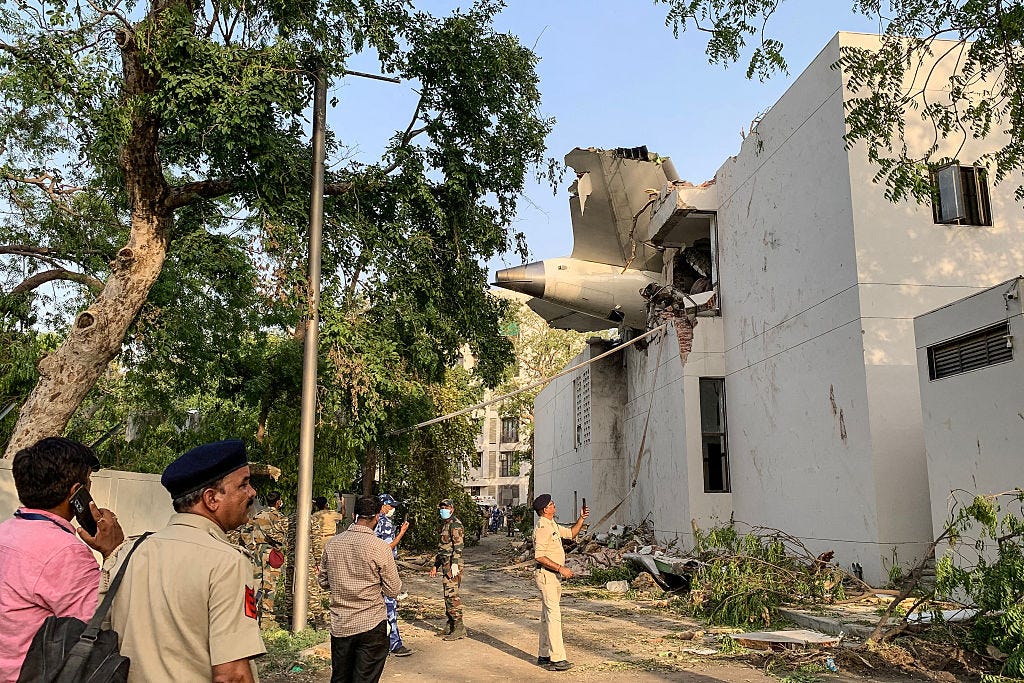Dangerous air pollution in India forces Delhi schools to close for 2nd time in 2 weeks
Delhi — The air pollution in India's capital got so bad again this week that the government was forced to close schools. It was the second time in two weeks. The air has been choked with a concentration of noxious pollutants about 10-times higher than what's considered safe by the World Health Organization.
The smog is so thick and the levels of toxins so high that it's a health threat not just for children, the elderly and those with underlying health problems, but for every single person exposed to the deadly air. India's pollution control authority ordered all schools in Delhi and its suburbs shuttered on both Thursday and Friday. All industries running on coal and other fossil fuels were also asked to stay closed.
The timing this week was poignant. Children in the capital were stuck at home on November 14, celebrated every year in India as "Children's Day."
Some students wrote open letters to Prime Minister Narendra Modi that were picked up by Indian media.
"I used to enjoy soccer earlier but now I can only enjoy it on TV," student Ishan Mahant said in his letter to the country's leader. "I cannot play outside because the air is too toxic to breathe."
The government was to decide on Monday whether to extend the two-week car rationing system that was put in place to halve the number of vehicles on Delhi's roads. The weekday restrictions, which allow cars with odd and even number license plates on the roads only on alternating days, were implemented when the pollution first spiked to record levels about 10 days ago.
The human impact
The air in Delhi is choked with smoke, largely from farm fires in neighboring states, and industrial and vehicle pollution. The levels of particulate matter — the tiny molecules that float around in the air and then get caught in people's lungs — have been measured at nearly 10-times the safe limit.
People have complained of difficulty breathing, burning eyes, headaches, and other symptoms for two weeks.
More patients continue to pour into Delhi's busy National Institute of Tuberculosis and Respiratory Diseases every day. Most, if not all of the patients at the hospital are there thanks, at least in part, to the pollution.
Savitri Devi, 70, who suffers from asthma, was admitted earlier this month for emergency treatment.
"She suffered chronic breathlessness soon after Diwali (October 27)," her daughter, Kiran Kashyap, told CBS News. "The asthma device (bronchodialator) didn't help at all, so we had to bring her to the hospital."
Another patient, Lakhiya Devi, 55, started feeling breathless after arriving in Delhi from another state to visit her daughter.
"It felt like entering a room filled with smoke," Devi told CBS News. She was admitted a week ago and doctors have been giving her oxygen. "I am feeling much better now," she said on Thursday.
Sumit Kumar has missed school for the past two weeks as he undergoes treatment for a lung infection.
"Doctors have not started any medication yet; they are waiting for the test results," the 15-year-old's mother Seema Kumari told CBS News. "I have no idea how long his treatment will go on."
In April, India's leading chest surgeon Dr. Arvind Kumar told CBS News that breathing Delhi's polluted air for just one day is equivalent to smoking 25 cigarettes. He said the severe air pollution directly or indirectly causes cancer, stunted brain development, heart attacks, hypertension, birth defects, obesity, pneumonia, diabetes and various other respiratory problems.
A team of international doctors said in a report released this week that air pollution was to blame for some 500,000 deaths in India during 2016. The research also warned that increasing air pollution and climate change would expose the world's children to unprecedented health risks.
Another study published this summer said India's poisonous air was responsible for the deaths of more than 100,000 children under five every year. The State of India's Environment (SoE) Report found air pollution was responsible for 12.5 percent of all deaths in the country.
"Greater sense of urgency"
Air pollution in Delhi spikes every winter due to several factors, including lower wind speeds, festival fireworks and crop residue burning by farmers in Delhi's neighboring states.
Despite the Supreme Court banning the farm fires, they continue to burn. Last week, farmers in Haryana state told CBS News that it was easier and much cheaper for them to set the remnants of their last crop on fire rather till it back into the soil.
Earlier this month, environmental journalist Bahar Dutt told CBS News that the government only seems to show concern about the toxic air during the winter, when the pollution spikes.
"A greater sense of urgency from the government is missing," she said.
The Supreme Court demanded the governments in Haryana and other states bordering Delhi do more to support their farmers to deter crop burning.
The court said there should be cash handouts for small farms to help them deal with their waste products in a cleaner way. It also said the state governments should make the expensive machinery used to prepare fields available for rent.
